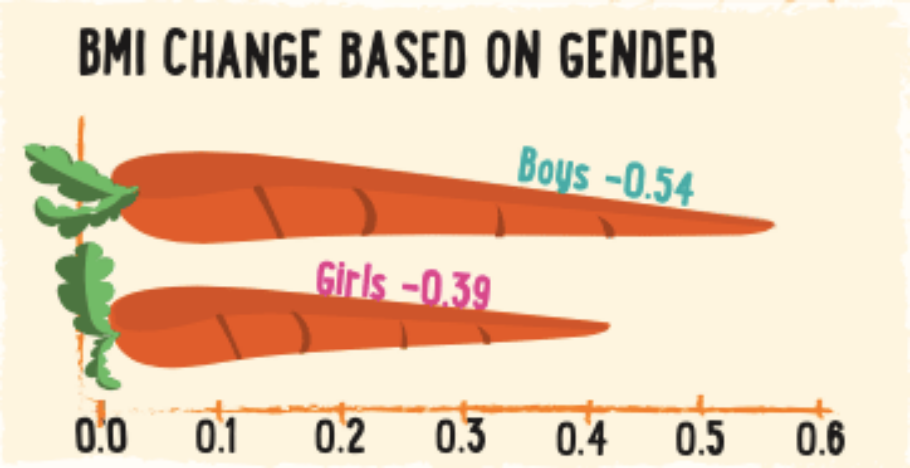Data is vitally important in our work at BeeZee Bodies. We’re an evidence based organisation focused on innovation and we know that we can only get better by really diving deep into ourselves.
We’re fortunate to have data hound and proud Hufflepuff, Charan Gill leading the charge to better understand what is working and how we can amplify the positive outcomes. Charan, was granted a fellowship with CLAHRC (Collaboration for Leadership in Applied Health Research and Care), newly named ARC (Applied Research Collaboration), and spent a year busily assessing data from years of in-person BeeZee Bodies weight management provision with a specific focus on children.
We love to share, so here’s what Charan found from the research with Children’s data:
Whilst weight management services have been successful in addressing the childhood obesity crisis by lowering BMI alongside other health outcomes, services currently serve only a small percentage of the population and can have high attrition rates.
What was the purpose of the research?
The purpose of Charan’s research was to determine if demographic factors such as quintile of deprivation (QOD), ethnicity, gender, marital status, disability, index of multiple deprivation (IMD), age on programme height, weight, and BMI influence successful completion of the BeeZee Families programme.
How was information collected and analysed?
Routinely collected demographic data were collated and refined to compare completion status against demographic and anthropometric variables. Observations were analysed in SPSS Version 25 using the Mann-Whitney test, independent t-tests, and one-way analysis of variance (ANOVA). For those that completed the intervention, associations between change in BMI and demographic variables were investigated.
What did we find?
- QOD, marital status of parent/carer, IMD, initial weight and initial BMI were all found to have a statistically significant impact on completion status of families (p < 0.05).
- Gender was the only variable found to have an influence on change in BMI (p=0.019).
Click here to view Charan’s Poster summarising the findings of her research into children’s completion rates and BMI reduction through WMS.
What conclusion can we draw?
By understanding the demographic factors which influence retention we can focus on families who may need additional support to complete the intervention, such as families living in highly deprived areas and those starting the intervention at a higher BMI. The results from the project will have direct influence on service delivery at BeeZee Bodies, with potential to impact future policy relating to children’s weight management interventions.
What’s next?
With the learnings from this research now being imbedded into our programmes, Charan is moving on to assessing the factors affecting adults completion and BMI reduction, and finally she’ll be assessing how our online programmes have stacked up so we can assess what part of the mix these will form in the future.


